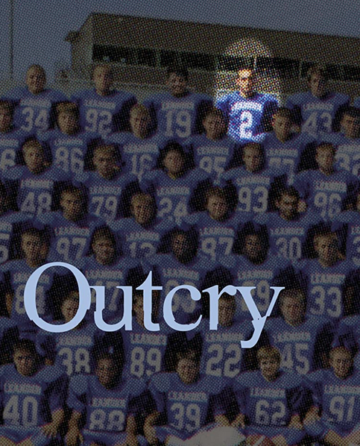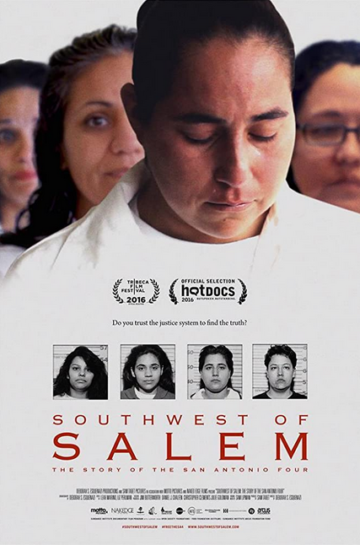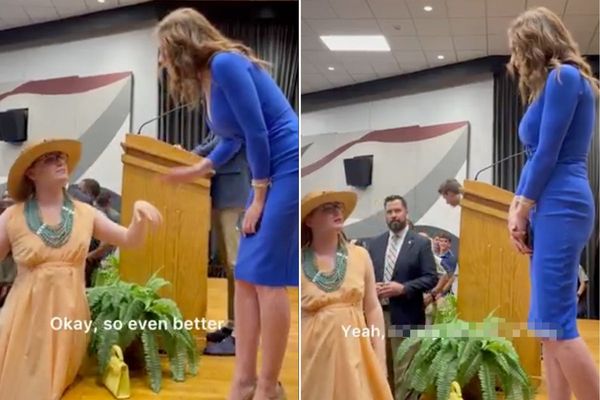It started with a case in a California preschool. Then another just up Interstate-5. Before long, there were two similar cases in Texas. Bizarre tales of the occult, animal sacrifice, and child abuse were coming out of day care centers all over the country, fueled by eyewitness reports from kids themselves. Child care centers closed down; parents chanted “we believe the children” at courthouses. History remembers this period, which started in the early ’80s, as the “Satanic Panic”—the same era in which Christian fundamentalist fervor flared up across the U.S. Dozens of child care providers were handed long prison sentences over these stories, which were proven untrue years, sometimes decades, later.
By 2000, the outcries had left the news cycle. Then in 2013, Greg Kelley—a star football player from Leander High School who his peers described as smart, hardworking, and committed to his sport—was arrested for molesting a 4-year-old boy at the in-home day care where Kelley was living at the time. By the time his trial took place in 2014, another 4-year-old at the home said Kelley assaulted him.

Kelley’s case, the subject of Pat Kondelis’ Outcry, a new documentary mini-series from Showtime, was reminiscent of those that came out of the moral panic of the ’80s and ’90s. Though occultism didn’t come up in Kelley’s case, calls to unequivocally “believe the children” were ever-present. Coercive interview techniques by the lead detective led to questionable testimony from the children involved. A shoddy police investigation fell apart in the courtroom. And, in the end, it led to a wrongful conviction. (Kondelis includes a short history of the Satanic Panic in his series, but doesn’t fully explore the legacy—even though it still informs cases like this today.)
Central Texas is no stranger to wrongful convictions in child sex assault cases. The 2016 documentary Southwest of Salem covers the case of the San Antonio Four, four Latina women who were convicted of sadistically abusing two young girls during the Satanic Panic and were recently exonerated after 24 years of prison and legal proceedings. The film draws a clear connection between the accused women’s lesbianism and residual cultural associations linking homosexuality and sexual deviance that were exploited in the trial. Debbie Nathan, the author of the preeminent book on the panic, Satan’s Silence: Ritual Abuse and the Making of a Modern American Witch Hunt, says in the documentary that it’s common for the defendants in such cases to be gay or suspected to be gay. While Southwest of Salem squarely places its story in a conservative social context, Outcry never fully does so. The show hints at the homogeneity and “wholesome values” of this Central Texas community, but doesn’t dig deeper.

In 2013, Kelley had already been in the news frequently for his high school sports career, so his criminal case was high-profile from start to finish. There’s at least one other obvious reason for this: It’s unusual for young, white passing football stars to go to jail in Texas, but it’s not all that rare for Latina women and mothers to be locked away. It’s worth asking whether Kelley would ever have gotten out if he wasn’t given the benefit of the doubt by some in his community, as many wrongly convicted Black and Brown folks are not.
Kelley’s conviction has another thing in common with the Satanic Panic cases: Child testimony. Researcher Kamala London, an expert on suggestibility research who is the scientific voice in Outcry, explains that child testimony has proven to be highly variable. “I absolutely think children should be believed when they’re interviewed with proper techniques,” London says. But in many cases, interviewers use leading questions, high-pressure tactics, and suggestive framing, she says. Because children’s memories are so impressionable, it’s easy for them to mix up what is real and what is imaginary when interviewers inadvertently plant events in their minds. These tactics were used in the infamous McMartin preschool case in California, Fran and Dan Keller’s case in Austin, in the case against the San Antonio Four, and others.
In Outcry, former Cedar Park Police Chief Sean Mannix insists that the young boy in the Kelley case would never have been able to imagine this abuse unless it had happened. The child “knows things about human anatomy” that he shouldn’t, Mannix says. In fact, there are countless cases in which children have been coerced to provide testimony of this nature and later recanted.
Three years after Kelley was convicted to 25 years in prison, the newly elected Williamson County district attorney, Shawn Dick, brought forward a lengthy hearing to reinvestigate. The hearing revealed that the original detective behind Kelley’s case, Christopher Dailey, had never identified his face with the child; never interviewed others in the house or nearby; and concealed, fabricated, and overlooked a host of other information. The show includes clips of the second child’s initial outcry at a children’s advocacy center, where Dailey interviews him—a controversial move panned by expert witnesses and neighboring police departments alike—and asks the same questions repeatedly as though he is interrogating a grown man. Amid criticism about due process in this case, the court released Kelley on bond. At the end of 2019, after considering the case for over two years, the state’s highest criminal court fully exonerated him.
Kelley’s case is a compelling example of a wrongful conviction, and Kondelis, who is based out of Austin, tells it elegantly. The narrative arc of Kelley’s life is stunning. The dramatic editing and heavy, evocative soundtrack are particularly memorable. The show covers a lot of ground, and with care. Kondelis makes Dick’s pursuit of the truth paramount in the show, and a knotty, challenging tale emerges. Footage from Dailey’s testimony in the 2017 hearing powerfully demonstrates what happens when law enforcement rushes to convict. Asked on the stand what the ultimate goal of a police investigation is, Dailey responds “successful prosecution.” In an interview, Dick disagrees: “It’s to seek the truth.”
It’s disquieting to watch truth shift around on screen like this, and the gravity of it permeates the show. Kondelis guides us there carefully, and in doing so encourages our own sense of uncertainty, discomfort, and careful deliberation for the sake of justice.
What Kondelis is missing is that Kelley’s case is part of a pattern. Outcry never goes far enough or deep enough, and dodges a critique of the U.S. criminal justice system writ large. Instead, it strips away context that could help its audience understand that the U.S.’ massive apparatus of unchecked policing and incarceration was built to come down on Black and Brown bodies, but in the process has haphazardly ruined the lives of people like Greg Kelley, too.
Read more from the Observer:
-
A New Study Finds a Link Between Flaring and an Increase in Premature Births: In the Eagle Ford Shale, a study found that pregnant, Latina women were more likely than white women to give birth prematurely.
-
Joaquin Castro Says He’ll Champion Progressive Foreign Policy: The representative from San Antonio is vying to become the chair of the House Foreign Affairs Committee.
-
Texas Solar Hits a Turning Point: As the coronavirus pandemic devastates the state’s already flailing oil and gas industry, solar energy production is on a trajectory for record growth.







